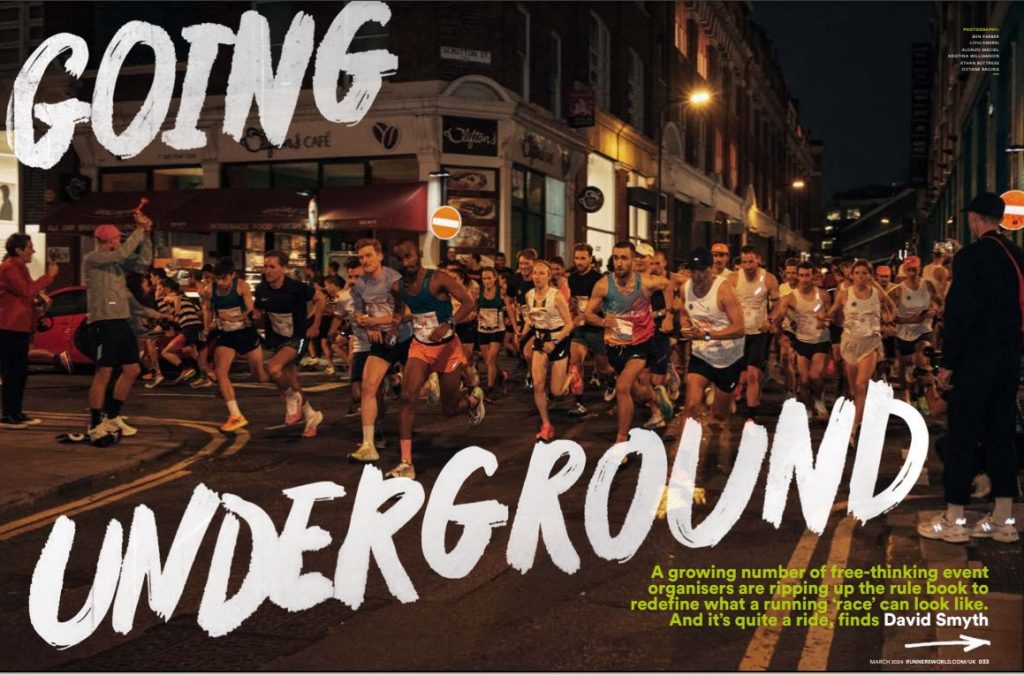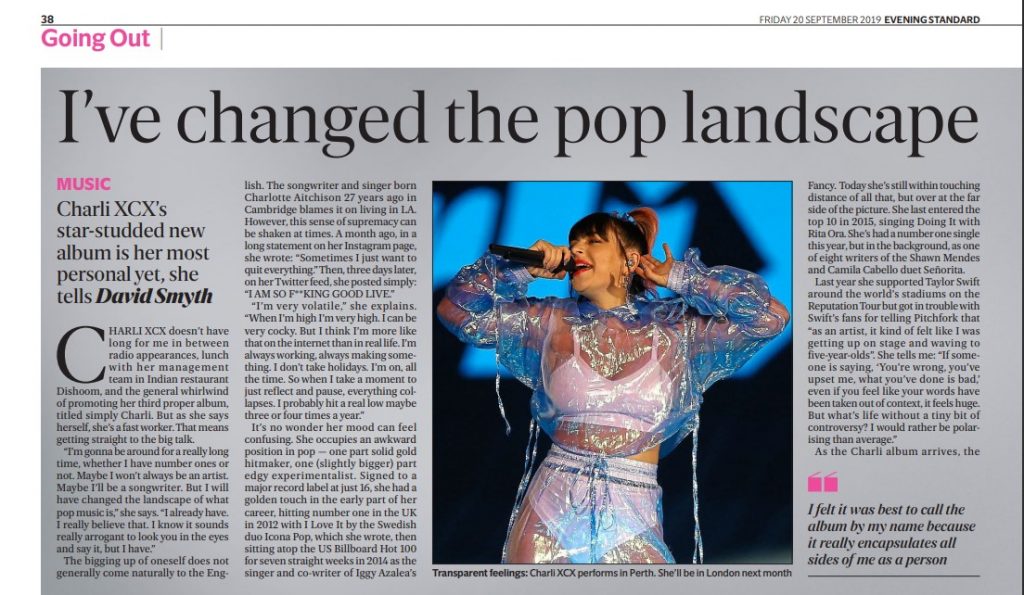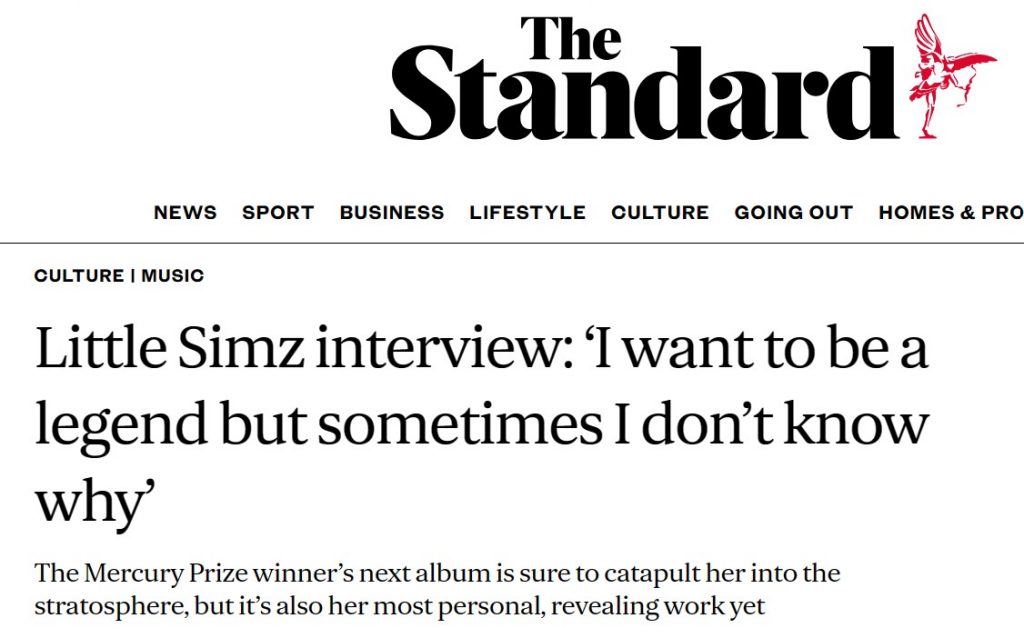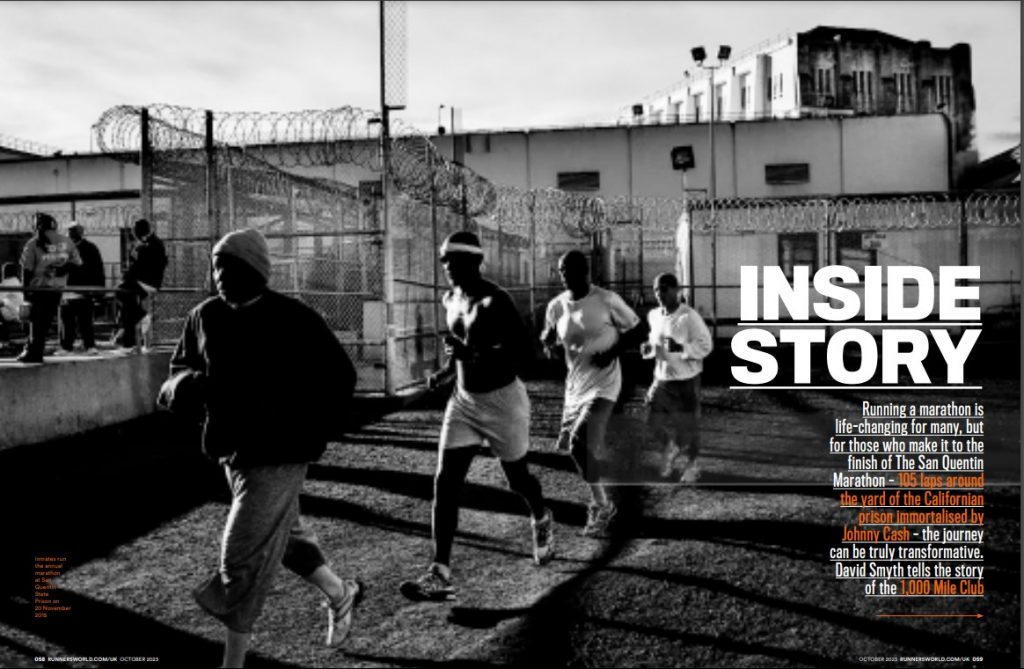As Scottish musicians led by a frontwoman who takes no prisoners, you might have assumed CHVRCHES are thick as thieves with Shirley Manson – especially now that, like the Edinburgh-born singer of Garbage, the Glasgow trio have relocated to the US.
In fact they only met her not long ago at a party in Los Angeles, where they were staying while recording their forthcoming third album. “She’s the coolest, always so uncompromising and fearless,” says Lauren Mayberry. “She said: ‘Don’t forget that this doesn’t happen to people like us, from where we come from. It’s crazy that we get to do this.’ Then she turned to me and said: ‘And it IS fucking harder for you and don’t let anyone tell you that it isn’t.’ Then she was gone, as if we’d imagined it.”
Mayberry, 30, who sings and writes the lyrics while Iain Cook, 43, and Martin Doherty, 35, construct the synthpop backdrop, doesn’t need reminding that this is a tougher ride for women. In September 2013, just after the band released their debut album and well before the #MeToo and #TimesUp movements seemed to turn the tide, she wrote an article for the Guardian titled “I will not accept online misogyny.” She detailed the abuse she wades through every day while maintaining the web presence of a group in which she is the only female member, and asked: “Why should I cry about this? Why should I feel violated, uncomfortable and demeaned? Why should we all keep quiet?”
Today, although it certainly didn’t make it go away, she’s glad she spoke out at a time when speaking out wasn’t generally the done thing. “It just shows that if you wait long enough, you’ll eventually be on trend,” she jokes. “The mentality at that point was that you can’t complain about it because that’s just the way it is. That rattled around in my head for so long. Why is it the way that it is? Maybe you’re not actively promoting those kinds of ideas, but by not saying anything and just accepting it, you’re encouraging it.”
She admits that she wasn’t feeling particularly brave when she did it. “I think the perception was that I came out like feminist Zorro, cutting it all down, but ultimately it was born out of lot of sadness and a lot of anxiety. It was tainting everything and not doing anything about it was making me a part of the problem. There was a lot of self-loathing. So I had to do it or my mental health would have made the band cease to exist.”
As someone who wrote her dissertation for a Masters in Journalism on the language of women’s magazines, then worked as an intern at the Independent, Mayberry is more conscious than most of the way she is presented in the media. For a long time she refused to do interviews without her bandmates or be photographed alone. “You see it with other acts who came out at the same time as us. If you do a lot of female-focused or fashion-based press, you get separated from the rest of the group.” Now she has relaxed those rules a little, telling me that she has just spoken to a couple of “women’s mags” – though she says the words in a silly voice so perhaps still isn’t fully comfortable with the idea.
That’s far from the only change that CHVRCHES are making this time around. All three of them have moved to Brooklyn – one at a time, Mayberry first. “I feel like I’d written as much as I could about how I felt about myself and about Glasgow at that time. It was time to try something else,” she tells me. Cook followed and met a new partner out there. Then Doherty joined them, moving “97 paces” from Lauren’s place, to begin work on demos for the third album, which is called Love is Dead.
I meet them in a London hotel when they pop back over for some visa admin. Still very much friends as well as bandmates, they had an evening out together in the pub the night before and are now sharing hangovers.
For the first time, they didn’t produce the album themselves, initially “speed dating” a number of different producers before ending up making nine of the 13 songs at Greg Kurstin’s studio in the basement of his LA home. “We liked that he can make a Foo Fighters record and an Adele record and a Tegan and Sara record. He’s not just applying one thing in one way. It takes a special kind of talent,” says Mayberry. The boys experienced severe gear envy, being granted access to keyboards and drum machines whose sounds they had previously only aped using inferior software plug-ins. “It was the most creative environment,” says Doherty. “For a band that’s synth-driven, like we are, my God – it was like getting the keys to the sweetie shop.”
The band have earned two top 10 albums but not yet a big single, unless you count two weeks at number 38 in 2013 for their debut release, The Mother We Share. They deny that employing Kurstin, the man with a hand in female-fronted smashes such as Adele’s Hello, Ellie Goulding’s Burn and Sia’s Chandelier, was a bid for a mainstream hit. Their comeback single, Get Out, couldn’t be catchier, though it’s also built on a rumbling, menacing synth line. “Some of the songs we made with Greg are the most difficult, progressive things we’ve ever done,” says Doherty.
“I don’t really care about people’s perception of that. We aren’t really playing that game,” adds Cook. “I want to make the best possible music that we can and I want it to connect with people. We’re just having fun and doing our best work.”
During the making of the album they ended up with about 40 songs, which they played to their record company people blind. It was the Kurstin tracks that rose to the top even before his name was mentioned. Other highlights include Heaven/Hell, which perfects the CHVRCHES mix of synth euphoria with darker undertones, and My Enemy, a gorgeous, spectral ballad performed as a duet with Matt Berninger of The National.
Mayberry, who normally writes her lyrics away from the place where the music is made, this time let the two things inform each other much more. “We wanted to get a couple of words or a phrase locked in at the start, so the sounds and the lyrics felt more connected,” she explains.
She hand-writes her words, crossing out those she is unhappy with, so nothing is ever fully deleted. “It’s an extremely vulnerable thing to do,” says Doherty. “And Lauren is a self-editor, so often the most raw and real thing that she writes, there’ll be a big line through it. But we’re now at a stage where there’s a level of trust going on in the creative process.”
“Most of the feedback I get is that the thing I thought was a bit much, or too intense, these guys push me to say it,” says Mayberry. “This record definitely feels like nothing remained crossed out.”
Speaking their minds since 2013, Mayberry and CHVRCHES have nothing to fear now. Their new music deserves to make them bigger than ever. I think they can handle it.
Love is Dead is released on May 25 on Virgin EMI.









